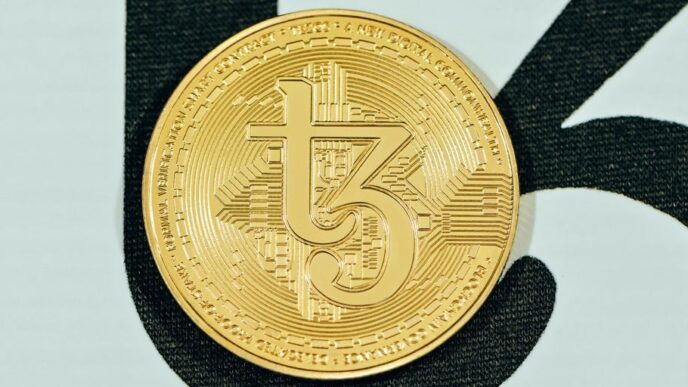West Virginia State Senator Chris Rose has introduced a groundbreaking bill, titled The Inflation Protection Act of 2025, aimed at allowing the state treasury to invest in digital assets and precious metals. This initiative comes amid a growing trend among U.S. states to establish digital asset reserves as a hedge against inflation.
Key Takeaways
- The Inflation Protection Act of 2025 allows West Virginia to invest in digital assets with a market cap over $750 billion.
- The bill permits a maximum of 10% of the state treasury’s total funds to be allocated to these investments.
- Bitcoin is currently the only digital asset that meets the proposed market cap requirement.
- The bill reflects a broader movement among states to create strategic reserves in response to federal monetary policies.
Overview of The Inflation Protection Act
Senator Chris Rose’s proposal, submitted on February 14, 2025, is designed to enable the West Virginia Treasury to diversify its investment portfolio by including digital assets. The bill specifies that the treasury can invest in any digital asset with a market capitalization exceeding $750 billion, which currently includes Bitcoin (BTC) as the sole qualifying asset.
The legislation allows the state to invest up to 10% of its total funds in digital assets and precious metals, providing flexibility in how these assets are held, whether on-chain or through exchange-traded funds (ETFs).
Context and Implications
This legislative move is part of a larger trend across the United States, where several states are exploring or have already introduced similar bills. The motivation behind these proposals is to create a buffer against inflation and to leverage the potential growth of digital assets.
- Recent Legislative Activity: Other states, such as Utah and Kentucky, have also introduced bills allowing their treasuries to invest in digital assets, with Utah’s bill already passing the House of Representatives.
- Federal Interest: The push for state-level digital asset reserves coincides with federal interest, as President Donald Trump has commissioned a working group to study the feasibility of a digital asset reserve for the federal government.
The Growing Trend of Digital Asset Reserves
The introduction of the Inflation Protection Act is not an isolated event. It reflects a significant shift in how states are approaching their financial strategies in light of economic uncertainties. Here are some notable developments:
- Utah: A bill allowing the state treasury to invest in Bitcoin and other digital assets passed the House and is awaiting Senate approval.
- Kentucky: Similar legislation has been introduced, permitting up to 10% of state funds to be allocated to digital assets.
- Michigan: Recently introduced a proposal without specific restrictions on the types of digital assets included in the reserve.
Conclusion
The Inflation Protection Act of 2025 represents a significant step for West Virginia in embracing digital assets as a viable investment strategy. As more states consider similar measures, the landscape of state treasury management may evolve, potentially leading to a more diversified and resilient financial framework. This trend could also influence federal policies regarding digital assets, as states take the lead in exploring their benefits and risks.
Sources
- West Virginia legislator introduces digital asset reserve bill, Cointelegraph.














